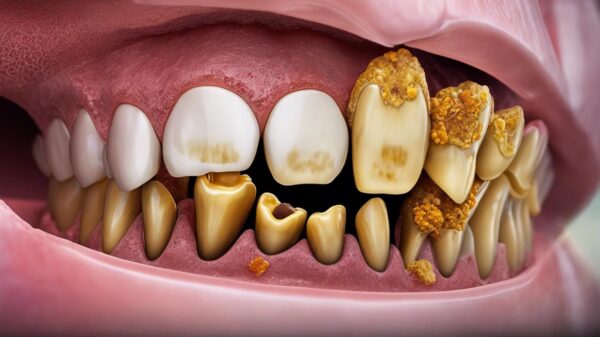Dealing With Wisdom Teeth Pain
The pain that one experiences while growing wisdom teeth is inevitable. I was a teenager when mine grew in and got them removed when I was in my early twenties. To manage the pain while they grew in, there were several things I tried. And since I know this is such a common and un-enjoyable event for most people, I thought I would share what worked for me!
So in this article, I will be talking about growing wisdom tooth pain, causes, and home remedies.
The growing in of wisdom teeth hurts so badly because the bone is inflamed and swollen, which puts pressure on the nerves. It can also hurt because your mouth is too small to appropriately fit the wisdom teeth. So, your teeth may ache because they are being pushed on by your growing wisdom teeth.
A few home remedies that helped get me through this phase include:
- Pain medication (especially ibuprofen since it’s an anti-inflammatory)
- Saltwater rinses (mix one teaspoon of salt with a cup of warm water and rinse your mouth out)
- Over the counter pain relief rubs like Oragel or Anbesol
- Eating very soft foods for a while until the pain subsided.
- You can also try ice packs to help reduce swelling and inflammation.
- Ice pack (this is my favorite remedy, I would make an ice pack by putting ice cubes in a plastic baggie and wrapping it in cloth)
If you are still experiencing severe pain after trying these remedies, you should call your dentist and see what other options you have. If you’d like to learn more about wisdom tooth pain and these remedies, keep reading!
 How And Why Wisdom Teeth Grow
How And Why Wisdom Teeth Grow
Wisdom teeth typically grow between the ages of 14 and 25 (give or take a few years). Now by “grow”, I mean they literally push through your gums and become visible.
This is because wisdom teeth are the last to develop, usually developing right before we reach puberty. But, they don’t become functional teeth until we are in our late teens or early twenties. They may even come in later than that!
Wisdom teeth come in last because they are the furthest back, and it takes the longest for them to develop. The closer a tooth is to the front of your mouth, the earlier in your life that tooth will come in.
However, there are cases where wisdom teeth do not correctly grow in, or their structure gets altered as they push through your gums. This may require you to get them removed. While not everyone is born with wisdom teeth or needs them removed, many do. Scientists theorize that we may eventually evolve to not have wisdom teeth at all!
When Wisdom Teeth Grow In Wrong
Wisdom teeth can also be referred to as “third molars“. These teeth often fail to break through the gums, or only partially emerge from the gum. This may require you to get them removed later on in life.
Also, wisdom teeth can grow in curved or at awkward angles that may cause them to become impacted. If this happens, your dentist will recommend having them removed as soon as possible to avoid other complications like gum damage and tooth decay.
Causes Of Wisdom Tooth Pain
While our wisdom teeth are growing in, they can hurt for several reasons. So here are some of the main causes of wisdom tooth pain:
- Pressure – the gum tissue is inflamed and swollen, which puts pressure on your teeth. This can be so painful!
- Too small – this is similar to the cause above. Your entire mouth may not be big enough for your wisdom teeth, since they are coming in last, and you’re already fully formed by the time they arrive.
- Tooth decay – the tooth is either rotting or has cavities, which hurts terribly (I know that from experience!)
- Crown of wisdom teeth – when there are bumps or extra tissue on your wisdom teeth, it can rub on the other teeth in your jaw and cause pain. This is common with braces too!
- Infection – this is a rare cause of wisdom tooth pain, but it can happen. The main reason for this is that the wisdom teeth are pushing through your gums and into your mouth without being fully formed yet. Sometimes bacteria from the back of your throat get into these open areas, which leads to an infection.
 Natural Home Remedies
Natural Home Remedies
Now that we know more about why wisdom teeth hurt so much, let’s talk about relief! I have tried lots of things and some worked better than others. In this first list, I’m going to share natural at-home remedies.
- Saltwater rinses. This was my go-to for a while. You can make your own salt/water mixture (one teaspoon of salt with one cup of water) and then add some mouthwash for taste. If you struggle to rinse, try an actual bottle with a nozzle on it.
- Hot/cold compress. I like using this one because it feels even better than just plain ice, plus you get the benefits of both hot and cold for double relief!
- Lavender essential oil. This is another popular remedy, but I have to say that it didn’t work the best for me. To use this method, apply a drop or two of lavender oil with a cotton ball to the area near your wisdom tooth, and then let it sit for as long as you can. This may be most effective when used overnight.
- Garlic clove tea. I don’t know how I heard about this one, but all you have to do is place a garlic clove in a cup of hot water, and let it steep for about 5-7 minutes. Then just strain out the garlic and drink the tea. This is said to help with infection as well as pain.
Other Remedies
Now the next ideas are the non “natural” ones. Not that there is anything wrong with them. It is up to you and your personal preferences.
- Over-the-counter medication. Pain medicine like Ibuprofen or Acetaminophen can help reduce swelling and pain. Just make sure you follow the bottle’s instructions for dosage.
- Gels or Teeth Rubs. You can rub numbing gel or cream around the area that hurts, which gives you immediate relief.
- Wisdom tooth removal. This is by far the most effective way of getting rid of wisdom tooth pain quickly and for good. But is also expensive, has a longer recovery, and is real surgery. But again, this route may be necessary for your dental health.
How Long Does It Take Wisdom Teeth To Come In?
While each person’s experience is unique, this is typically how the process goes:
Your wisdom teeth are formed two years after you are born. Some people have them break through their gums as early as 12-14 years old! But usually, by 18-21 years old, they don’t hurt.
The next step up until they fully erupt (the act of your teeth leaving the gums) is about 2-3 years. This is when they start to come through the gum line, which is usually what causes the most pain.
Then it takes another few weeks or months until they fully work their way out of your mouth. When this happens, you’ll know because there finally won’t be any pain!
So in total, it takes an average of 5-7 years for wisdom teeth to come in. And that’s it! If you are unlucky, then they are impacted and might need to be removed by a dentist. But some people with wisdom teeth don’t have problems at all.
Will I Have To Get My Wisdom Teeth Removed?
The only way to know for sure is to visit your dentist. They can tell you whether or not you need to get them removed, and if so, how soon it should happen.
If they are impacted (the most common reason for wisdom tooth pain), then the answer is absolutely. But even if they aren’t, it’s up to you. Removal is an option if they are causing you pain or problems in your mouth.
You will also want to consider how much the wisdom teeth are affecting the other teeth in your mouth. This may also be a reason to get them removed especially if you have invested in braces and have straight teeth that are in jeopardy now.
 Is Wisdom Teeth Removal Painful?
Is Wisdom Teeth Removal Painful?
Yes, though you can usually take medication to help with the pain. When I had mine out, they gave me sleeping medicine, and I didn’t wake up during the surgery.
But some people do notice more pain than others and on a scale of 1-10 (1 being no pain and 10 being excruciating), most patients say 4 is the worst that it gets for them.
What Can I Expect After Wisdom Teeth Removal?
We all heal differently, but this is what you can expect as a general guideline:
- Your face will be swollen for at least 24 hours. You may even experience bruises and stitches that need to heal. This usually takes the most time, about 7 days or so. After this point, your face should return to normal.
- You’ll want to avoid opening and closing your mouth much, especially in the first few days. This will help you heal faster and feel better.
- You’ll want to eat soft foods that won’t hurt when you bite into them or cause too much pressure. Soup is a great option and recommend, and then you can move on to mashed potatoes and fruits like applesauce.
- It’s up to you if you want to brush your teeth after the surgery, but consider leaving it for at least one day afterward. This will give you more time with stitches in place and ensure that they heal correctly.
Unfortunately growing in wisdom teeth is unavoidable, but it doesn’t mean that they will hurt. And if they do, you have many options to deal with the pain. I hope this article has helped you feel better prepared to deal with wisdom teeth growing pains. Good luck!












